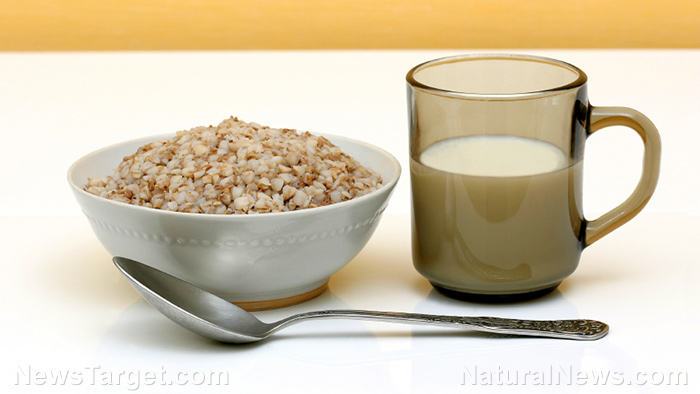Get a nutty treat and improve your cholesterol levels with tartary buckwheat
09/16/2019 / By Ralph Flores

In a recent study which appeared in Nutrition Research, researchers from China found that tartary buckwheat, a crop widely grown in Asia, can help improve insulin levels in people with Type 2 diabetes. They also revealed that eating this type of buckwheat can lead to reduced bad cholesterol levels.
To test whether tartary buckwheat can help with insulin resistance, the team enrolled 165 patients with Type 2 diabetes for the study. The participants were then assigned to either a control or intervention group. While both groups received systematic diet plans and nutritional education, those in the latter group were given a diet that includes tartary buckwheat.
The study was a month long, with the researchers collecting blood samples and diet information at the beginning and end of the study. They then compared the differences between the two groups at baseline and at the conclusion of the trial. The results showed that participants who were given tartary buckwheat had lower levels of fasting insulin, total cholesterol, and low-density lipoprotein — also known as “bad” — cholesterol than those in the control group at the end of the study. Fasting insulin is a biomarker for insulin resistance — a precursor of diabetes for many people. Total cholesterol and low-density lipoprotein cholesterol levels, on the other hand, are indicators of the risk of heart disease.
“These results support the hypothesis that [tartary buckwheat] may improve insulin resistance and lipid profile in [Type 2 diabetes mellitus] patients,” they wrote in their report. (Related: Buckwheat is an underutilized crop that holds great antioxidant potential.)

Buckwheat sounds like wheat, but it isn’t
Buckwheat gets a bad rap, especially among those who are looking to go gluten-free, because of its confusing name. Despite having the word wheat attached to it, buckwheat is classified as a pseudocereal — that is, a seed that is eaten the same way as cereal grains despite not growing on grass. Other well-known pseudocereals are amaranth and quinoa.
Unlike cereal grains, buckwheat does not have gluten, making it an ideal replacement for wheat when making groats, noodles, and flour. In Japan, buckwheat tea (soba-cha) is a popular drink for those looking for a relaxing and healthy drink. Buckwheat groats are used instead of rice in many traditional dishes in Asia and Europe.
Aside from its ability to improve insulin sensitivity, buckwheat is also rich in antioxidants and minerals.
- Manganese: Many of the body’s processes rely on manganese, including metabolism, growth, and development.
- Copper: This essential trace element is beneficial for the heart. Western diets are known for being deficient in copper.
- Magnesium: Magnesium can reduce the risk of Type 2 diabetes, heart disease, and other chronic illnesses.
- Iron: This mineral is beneficial for the blood as it increases its capacity to transport oxygen in the body.
- Phosphorus: Tissues need phosphorus for healthy growth and repair.
Aside from these micronutrients, buckwheat also provides amino acids like lysine and arginine.
While most Americans are familiar with buckwheat, it’s worth noting that there are two types grown for food: common buckwheat (Fagopyrum esculentum) and tartary buckwheat (Fagopyrum tartaricum).
Learn more about buckwheat and other diabetes-fighting foods at Food.news.
Sources include:
Submit a correction >>
Tagged Under:
alternative medicine, anti-diabetes, bad cholesterol, cholesterol, clean food, diabetes cure, diabetes science, dietary fiber, disease treatments, Fagopyrum tartaricum, flavonoids, food cures, food is medicine, functional food, gluten free, insulin, insulin resistance, Lipid profile, natural cures, natural medicine, nutrients, prevention, protein, pseudocereals, research, tartary buckwheat, Type 2 Diabetes, whole food
This article may contain statements that reflect the opinion of the author





















